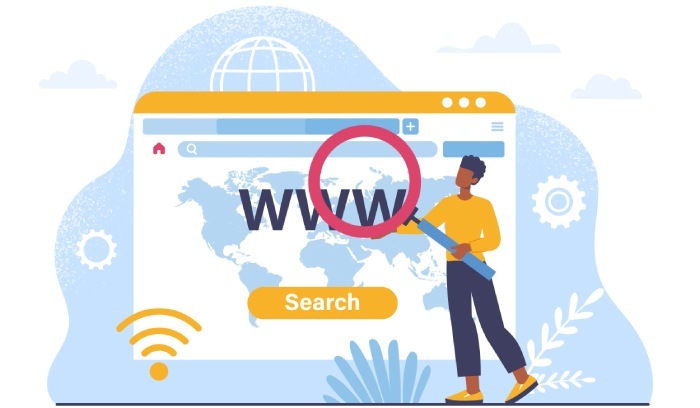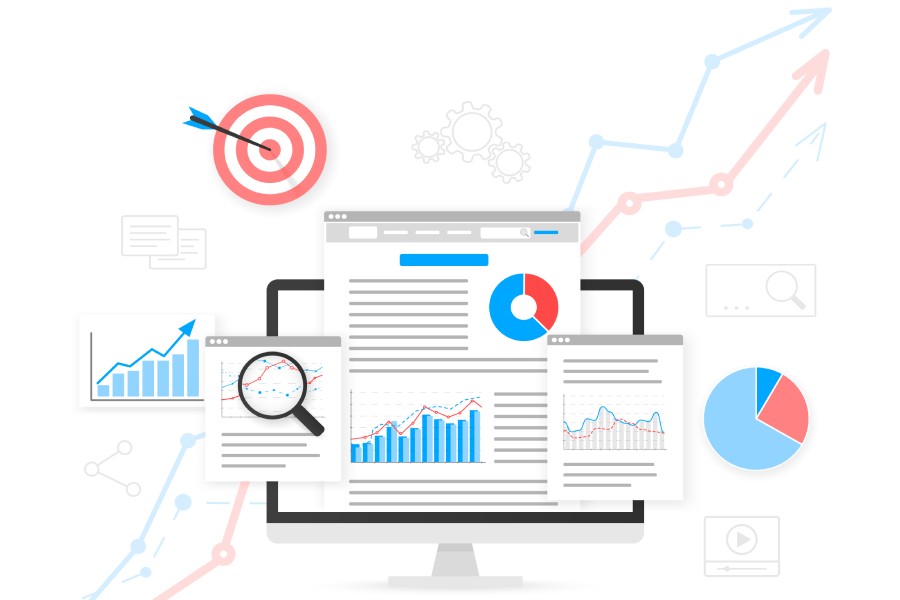Complete Guide To Domain Name Analyzer Features And How They Help Your Seo
A domain name analyzer is an essential tool for website owners, SEO professionals, and domain investors seeking to optimize their online presence. By providing detailed insights into a domain’s history, authority, and valuation, these analyzers allow users to make informed decisions about domain acquisitions, renewals, and portfolio management. Features such as WHOIS lookup, DNS analysis, and domain monitoring help assess domain security, ownership details, and compliance with ICANN regulations, ensuring that your domains remain trustworthy and SEO-friendly.
Beyond basic checks, advanced domain analyzers evaluate keyword relevance, backlink profiles, and domain market trends, enabling businesses to improve search engine rankings and brand visibility. By analyzing domain age, subdomains, and historical performance, these tools help identify high-value domains, prevent SEO pitfalls, and enhance overall website performance, making them indispensable for strategic online growth.
What Is a Domain Name Analyzer?
A domain name analyzer is an essential tool for anyone engaged in domain registration, domain management, or SEO domain analysis. It provides an in-depth evaluation of a domain’s attributes, including its domain authority, domain history, and domain valuation. By leveraging features such as WHOIS lookup and DNS lookup, a domain name analyzer offers insights into domain ownership, domain expiration dates, domain security, and compliance with Internet Corporation for Assigned Names and Numbers (ICANN) policies. Services like DomainTools, Whois.net, and Namecheap integrate these analysis capabilities to assist users in assessing domain availability, detecting expired domains, and performing domain monitoring to track changes in domain status.
Advanced analyzers go beyond basic information, offering domain appraisal and domain keyword relevance analysis to help users optimize their domain portfolio strategically. For domain investors and website owners, understanding a domain’s past performance, current ranking, and market trends is fundamental for enhancing search engine optimization (SEO) and protecting brand integrity.

Key Features of Domain Name Analyzers
Domain name analyzers incorporate a variety of functionalities that collectively provide a comprehensive view of a domain’s strength and suitability. The key features include:
WHOIS Lookup
WHOIS lookup is indispensable for retrieving domain ownership details, registration dates, domain expiration, and information pertaining to domain privacy settings. Tools like Whois.net and DomainTools allow users to identify registrars such as GoDaddy, Google Domains, or Name.com that manage the domain.
DNS Lookup
The DNS lookup feature helps to analyze the domain name system (DNS) by revealing IP address lookup data, subdomain analysis, and SSL certificate check results—which are crucial components for domain security and overall website reliability.
Domain Availability and Domain Suggestions
A domain name generator integrated within the analyzer suggests domain names based on keyword analysis and TLD analysis (top-level domain extensions), aiding users in discovering viable domain extensions and creative domain name suggestions compatible with their brand.
Domain Appraisal and Domain Valuation
Sophisticated domain name valuation tools assess the domain’s monetary value by evaluating metrics such as domain age, domain authority, domain ranking, and domain reputation. Platforms like Sedo, Epik, and SnapNames use these valuations to facilitate domain brokerage and domain auction sales within the domain name marketplace.
Domain History and Domain Compliance Checks
Analyzers perform domain history inspections to uncover previous ownership changes, backorder services, or any potential domain blacklist check flags that may harm SEO performance and domain reputation. Furthermore, domain compliance checks ensure the domain follows ICANN and TLD registry requirements, mitigating risks related to domain dispute resolution.
Domain Monitoring and Domain Analytics
Continuous domain monitoring assists in tracking domain status changes, expired domains, and potential signals of cyber threats, while domain analytics provide detailed website traffic estimation, aiding in keyword strategy refinement and SEO efforts.

How Domain Name Analyzers Assess Domain Authority
Domain authority is a critical metric used by SEO professionals to gauge the strength and trustworthiness of a domain within search engine algorithms. Domain name analyzers evaluate domain authority by considering multiple factors:
- Domain Age: Older domains, especially those with consistent domain registration and renewals via registrars like Bluehost or Hover, are generally assigned higher domain authority due to their longevity and stability.
- Backlinks and Domain Reputation: Analyzers scan backlink profiles and domain reputation, identifying any negative signals from domain blacklist check services that could reduce ranking potential.
- Domain History: Past ownership changes or domain transfers can affect domain authority if previous owners engaged in poor SEO practices. DomainTools and IAM Domain Experts enable in-depth domain history analysis to uncover such details.
- Domain Compliance and Security: Security features such as SSL certificate checks and adherence to ICANN compliance standards help establish trust, further influencing domain authority scores.
- Subdomain Analysis: Evaluating subdomains and associated IP address lookups sheds light on the broader network’s reputation, which can influence the main domain’s authority.
Webmasters and SEO professionals rely on this aggregated data to decide whether to acquire a domain from platforms like NameSilo or Gandi or to negotiate via domain brokerage services.
The Role of Keyword Analysis in Domain Evaluation
Keyword analysis is pivotal in domain name research, making domain keyword relevance a crucial factor when selecting or appraising a domain. Domain name analyzers examine existing keywords embedded in the domain name, including popular search terms and brand-related keywords, to determine how well the domain can perform in SEO.

Integration in Domain Suggestions
Domain name suggestions generated by leading registrars such as Dynadot or Network Solutions often incorporate keyword analysis to propose domain extensions and domain names that align with current domain market trends. This helps businesses achieve better SEO rankings by targeting relevant and high-performing keywords.
Impact on Website Traffic Estimation
By analyzing keyword relevance, analyzers can estimate potential website traffic increases. Effective keyword usage within domain names often correlates with improved domain ranking and greater organic search visibility, which are vital for brand protection and expansion.
Benefits for Brand Protection
Strategic keyword incorporation also enhances brand protection by preventing cybersquatting or unauthorized domain registrations in closely related TLDs (top-level domain extensions). Monitoring tools from services like GoDaddy or Epik scrutinize domain portfolios to ensure compliance with trademark policies and reduce domain dispute resolution cases.
Checking Domain History and Its SEO Impact
The historical data of a domain profoundly impacts its SEO viability. Domain history includes information about prior domain registrations, transfers, expiration patterns, and even past SEO practices associated with the domain.
Risks Associated with Domain History
Domains previously involved in spam, malware distribution, or listed on blacklists can carry a tainted domain reputation that undermines SEO efforts. A domain blacklist check, typically performed through domain name analyzers powered by providers like Namecheap or DomainTools, is essential before initiating domain acquisition or renewal.
Benefits of Detailed Domain History Analysis
Analyzers enable users to investigate historical domain ownership records, connecting them to registrars such as Network Solutions, Google Domains, or Donuts Inc., which manage extensive domain portfolios. This data is instrumental for domain brokerage professionals and buyers assessing potential domain investments or expired domains available through backorder services and marketplaces like Sedo or SnapNames.

Influence on Domain Authority and SEO Ranking
A clean domain history supports better domain authority scores and higher domain ranking on search engines, positively impacting website traffic estimation and brand credibility. Conversely, domains with problematic histories require domain dispute resolution or domain transfer considerations to mitigate SEO damage.
Utilizing Domain History for Domain Valuation
Through domain appraisal and domain name valuation tools, users can quantify the SEO impact of a domain’s history, facilitating informed decisions about bidding in domain auctions or managing domain expiration renewals effectively.
Analyzing Domain Age and Expiration for SEO Benefits
Domain age has long been a critical factor in effective SEO domain analysis. Older domains often carry higher domain authority due to their established presence in the domain name system, positively influencing domain ranking in search engine results. This age-based trust can contribute significantly to better website traffic estimation and keyword relevance outcomes.
Examining domain expiration dates through WHOIS lookup services or domain monitoring tools is equally important. Domains that are nearing expiration or that have recently expired can experience drops in SEO value if not properly renewed. Utilizing backorder services via registrars like GoDaddy or Namecheap can help secure valuable expired domains before competitors, integrating them seamlessly into your domain portfolio. Additionally, domain history reviews, available through platforms like DomainTools or Whois.net, provide transparency on previous ownership, domain disputes, or compliance issues that may affect SEO and brand protection efforts.
Evaluating Backlink Profiles Through Domain Analyzers
Evaluating backlink profiles is a cornerstone of comprehensive domain analytics. Domain analyzers offered by services like DomainTools or IAM Domain Experts enable detailed reports on inbound links, domain reputation, and backlink quality. Understanding the backlink structure helps assess the domain’s authority, relevance, and potential SEO influence.

An SEO domain analysis that includes backlink profile evaluation can detect the impact of outbound and inbound links on domain ranking and domain authority. Leveraging this information, domain appraisals and domain valuation tools provide precise insights into a domain’s worth, especially when considering acquisitions through domain auction platforms such as Sedo or Epik. Combining backlink insights with domain keyword relevance enhances SEO strategies, making this a crucial step during domain name research or domain brokerage negotiations.
Identifying Spam and Blacklist Status Using Domain Tools
Maintaining a clean domain reputation is essential for domain security and search engine compliance. Performing domain blacklist checks via established domain monitoring tools protects your domain from spam-related penalties and brand reputation damage. DNS lookup and IP address lookup further reveal if a domain has ever been associated with malicious activities or is blacklisted by search engines, email providers, or security platforms.
Utilizing resources from Whois.net or services integrated within registrars like NameSilo and Hover allows for early detection of domain compliance issues. Implementing regular domain monitoring helps identify potential security breaches or issues before they escalate into domain disputes or domain expiration problems. A reputable domain name valuation is contingent upon having a domain free from blacklists, which also boosts domain ranking and overall SEO performance.
Integrating Domain Name Analysis into Your SEO Strategy
Integrating domain name analysis deeply into your SEO efforts enhances both organic traffic and domain authority. Consider the full spectrum of domain analytics, including domain keyword relevance, TLD analysis, and subdomain analysis, to optimize website structure and content deployment strategies. Tools for SEO domain analysis also incorporate domain ranking, website traffic estimation, and domain blacklist status to provide holistic SEO insights.
Platforms like Google Domains, Bluehost, or Network Solutions offer integrated domain management dashboards that combine domain registration data with SEO analytics, streamlining domain ownership management and identity verification. Moreover, leveraging domain name generator tools alongside domain name suggestions can help identify optimal domain extensions and keywords that resonate with your target audience, strengthening brand protection and market positioning within your domain name marketplace. Alongside domain monitoring and compliance checks, implementing SPF, DKIM, and DMARC ensures your emails are verified and your domain remains trustworthy.
Best Practices for Using Domain Name Analyzers Effectively
Using domain name analyzers effectively requires a strategic approach, focusing on accuracy and comprehensive data gathering. Begin with thorough domain name research, including WHOIS lookup to verify domain ownership and domain registration details. Regular DNS lookup helps maintain domain security and ensures domain compliance with industry standards governed by entities like the Internet Corporation for Assigned Names and Numbers (ICANN) and Verisign.
Employ domain appraisal and domain valuation tools to benchmark potential acquisition targets or to periodically review your domain portfolio’s worth in response to evolving domain market trends. For domains acquired via domain auction or backorder services such as SnapNames or Dynadot, continuous domain monitoring and SSL certificate checks guard against SEO penalties and cybersecurity threats.

As part of brand protection and domain management, conduct periodic domain history analysis and domain blacklist checks to prevent the use of suspicious or penalized domains. When considering domain transfers between registrars like Name.com or Gandi, ensure all domain compliance criteria are met to avoid disputes and maintain seamless SEO domain authority. By following these best practices, you can maximize the value and performance of your domains in both organic search and domain marketplaces.
FAQs
What role does domain age play in SEO ranking?
Domain age contributes positively to SEO as older domains tend to have higher trust and domain authority, which can improve domain ranking in search engines. However, content quality and backlink profiles are also critical factors.
How can I check if a domain is blacklisted or has a spam history?
You can use domain blacklist check tools from providers like DomainTools or Whois.net, which perform DNS lookup and IP address lookup to identify if the domain is flagged for spam or abusive behavior impacting domain reputation.
What is the importance of domain expiration in domain management?
Managing domain expiration is crucial to maintain continuous domain ownership and avoid losing domain authority. Services like backorder and domain monitoring help safeguard against inadvertent domain expiration.
How can domain name analyzers assist in domain valuation?
Domain analyzers provide insights into domain authority, backlink profiles, domain keyword relevance, and market trends, enabling accurate domain appraisal and helping identify valuable domains in the domain name marketplace.
Should I consider domain privacy when registering a domain?
Yes, domain privacy protects your personal information listed in WHOIS records, reduces spam, and improves domain security. Many registrars like Namecheap and GoDaddy offer this service during domain registration.

How does backlink quality affect my domain authority?
High-quality backlinks from reputable, relevant domains enhance your domain’s authority, improving SEO performance and domain ranking. Domain analyzers help you evaluate and monitor backlink profiles to maintain healthy SEO metrics.
Can expired domains still have SEO value?
Expired domains can retain SEO benefits like domain age and backlink profiles if managed properly through domain backorder services and domain history evaluation. However, expired domains with a poor spam history can harm SEO.
Key Takeaways
- Domain age and expiration management are critical to maintaining domain authority and SEO rankings.
- Comprehensive backlink profile analysis using domain analyzers improves SEO domain analysis and domain valuation accuracy.
- Regular domain blacklist checks and domain monitoring uphold domain security and protect domain reputation.
- Integrating domain name analytics including keyword, TLD, and subdomain analysis enhances overall SEO strategy.
- Best practices in domain management involve thorough WHOIS lookup, DNS lookup, domain compliance checks, and leveraging domain appraisal tools for informed decision-making in domain transactions.







